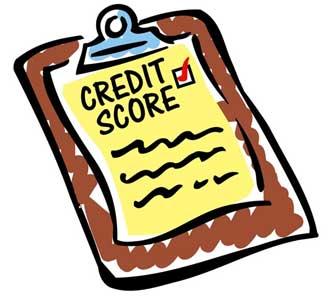
You require a credit score to get fresh debt and you must have existing debt to get a credit score... Confused? Well, here's how they are related
Credit score and debt share the chicken and the egg analogy, well almost! One is required for the other. When you have some kind of debt whether in the form of any kind of loan or a credit card (on which transactions are charged; not an unused one), it gives you a credit trail and a credit history which allows a credit rating agency to give you a credit score. A credit history of at least six months is required for you to get a credit score. If you require a loan (debt) then the financial institutions look at your credit score in order to judge your financial health so that they can sanction/reject your loan application.
So you require a credit score to get fresh debt and you must have existing debt to get a credit score… Simple isn’t it?
In case you do not have a credit score yet and are beginning to despair that you won’t get one without another, please don’t lose heart because there are ways to deal with that; we will come to that a little later.
While the above is one way to look at the link between credit score and debt there are other ways also in which debt or your treatment of it affects your credit score.
Let’s understand the effect of existing debt on the credit score
Debt treatment
The way one treats his/her existing debt influences the credit score to a great extent. This comprises both of payments and the debt load you carry. Whether it is a credit card outstanding or a loan they have to be repaid and this payment must be made on time always. Delayed payments or missed payments are a cause for poor credit scores.
Making or missing repayments as the case maybe go a long way in making your CIBIL report card. Similarly very high utilisation of the available limit on your card or maxing it month on month is an indicator of lack of financial discipline and can be a cause for low credit scores.
Debt combination
Debt is required for credit score. The kind of debt you have is also important to get a healthy rating from CIBIL. This means having a good balance of secured and unsecured debt. If you have only unsecured debt like personal loans and credit card then it does not bode well for the credit rating. Secured loans like automobile or home lend a positive touch to the credit rating report.
Debt enquiries
This is like saying that one was punished for thinking about a crime! Not only debt but queries about debt also contribute to the making or unmaking of your credit score. In case you want to apply for a loan it’s better to check your credit score yourself (which is known as a soft inquiry and does not impact the CIBIL rating) and then make an application to the bank after determining whether the bank lends at your level of credit score.
This will prevent rejection of the application thereby reducing the number of hard inquiries. Too many credit inquiries for your credit score indicate that either you are credit hungry or your loan application gets rejected often.
Now we explore the other side of the cycle; how credit score impacts your fresh debt potential?
Credit score impacts your potential for getting fresh debt and also the cost of debt. Credit scores decide whether you can or cannot get a loan from certain institutions. Depending on how low the credit score is the loan application may be rejected by a few institutions or may be rejected by all. Institutions will be unwilling or totally averse to lending to high risk clients as is revealed by a low credit score.
Credit score also impacts the cost of borrowing. Cost of borrowing is directly linked to the perceived risk perception about the prospective client. A high risk profile (indicated by a low CIBIL rating) results in a higher interest rate on loans and vice-versa is also true. Thus your credit score dictates the cost of borrowing. A bank may concede to lend to a person with a low credit rating but at a higher interest rate and on the other hand somebody with a good credit score can actually benefit by way of lower interest rates and fee waivers too!
A healthy credit score gives the applicant the choice to approach any bank and thus choose the one which offers the most favourable terms. A credit score in the red leaves the applicant at the mercy of lenders, whether they will even accept the application and in case they do despite the credit score, the terms will not be skewed in the favour of the applicant. Credit score decides whether fresh debt is available and at what cost.
How your treat and balance your existing debt contributes to your credit score which in turn influences you future debt potential and terms.
PS: Now coming to the issue we faced at the beginning of this post. How to begin if there is no credit history? One could start with a credit card. The key is to use it sensibly, well below the limit and always pay on time to maintain a good credit trail. So happy credit score building!
The author is a credit expert with 10 years of experience in personal finance and consumer banking industry and another 7 years in credit bureau sector. Rajiv was instrumental in setting up India's first credit bureau, Credit Information Bureau (India) Limited (CIBIL). He has also worked with Citibank, Canara Bank, HDFC Bank, IDBI Bank and Experian in various capacities.












 © 2025
© 2025